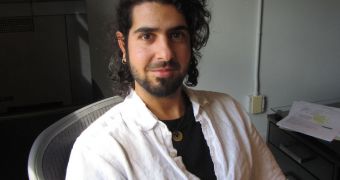The fact that religious people frantically distrust atheists is no secret to anyone, but psychologists were extremely interested in learning why is it that this happens. They learned that it all boils down to distrust, one way or another.
A collaboration of researchers from the University of British Columbia and the University of Oregon says that distrust can easily set a solid foundation for antipathy, and can also make religious people easily dislike anyone who claims that their personal beliefs are not reality.
The social psychological processes behind this type of antagonism have been studied only superficially in the past, and the joint team wanted to address this fault. Details of the work were published in the latest issue of the Journal of Personality and Social Psychology.
Anti-atheist sentiments are not only strong among religious individuals in general, but they are also inoculated into the younger generations. Children are brought up to believe that atheists are condemned, and that they only speak heresy.
“Where there are religious majorities – that is, in most of the world – atheists are among the least trusted people. With more than half a billion atheists worldwide, this prejudice has the potential to affect a substantial number of people,” Will M. Gervais explains.
The researcher holds an appointment as a psychology PhD student at the University of British Columbia, and was also the lead author of the new paper. “This antipathy is striking, as atheists are not a coherent, visible or powerful social group,” he goes on to say.
UBC psychology professor Ara Norenzayan and UP psychology professor Azim Shariff were both coauthors of the research paper. Together, the three scientists analyzed more than 350 US citizens and 420 college students in Canada. A total of 6 studies were conducted for this research.
In one of the studies, respondents indicated atheists to be just about as trustworthy as rapists. They were reported as being significantly more untrustworthy than groups including Christians, Muslims, gay men, feminists or Jewish people.
“Because anti-atheist prejudice is driven by distrust, the derogation against atheists seems to be confined to situations where trust is involved,” Shariff explains.
“In situations where it doesn't matter whether or not the person you're interacting with needs to be trustworthy, it matters a lot less whether that person is a religious believer or not,” he goes on to say.
In the end, it could all be an issue of people trusting individuals who fear divine retribution for bad behavior. Atheists do not fear such a retribution, so others may be less inclined to trust this group.

 14 DAY TRIAL //
14 DAY TRIAL //